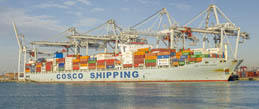Understanding International Logistics: A Comprehensive Overview
International logistics refers to the process of managing the movement of goods and materials across borders. It involves coordinating and optimizing the transportation, storage, and inventory management of goods to ensure efficient global trade. The primary goal of international logistics is to minimize costs, reduce delivery times, and enhance customer satisfaction while maintaining high standards of service.
The process of international logistics typically involves several key components, including transportation (such as air, sea, and road freight), warehousing, customs clearance, and inventory management. Each of these components plays a critical role in ensuring that goods are delivered efficiently and cost-effectively to their destination. For instance, transportation companies use advanced tracking systems to monitor shipments, while warehouses employ sophisticated inventory management software to optimize stock levels.
International logistics is essential for businesses operating in a global market. By streamlining the logistics process, companies can reduce operational costs, improve delivery times, and enhance customer satisfaction. Additionally, international logistics enables businesses to access new markets, expand their customer base, and stay competitive in today’s rapidly evolving global economy.
In conclusion, international logistics is a vital component of global supply chain management. By understanding the key components and processes involved, businesses can optimize their logistics operations, improve efficiency, and achieve their business objectives. As the global economy continues to grow and evolve, the importance of international logistics will only increase.
